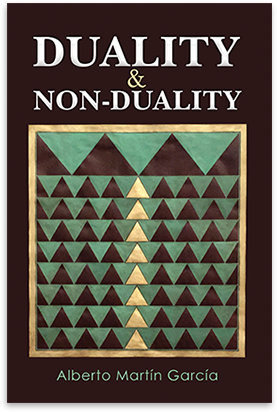
Duality & non-duality
FOREWORD
This book consists of a selection from Quora of some of the most relevant questions concerning metaphysics or spirituality that encompass the Eastern and Western traditions. The approach is catholic or universal, as can be appreciated in the table of contents. I make no apology for giving comparatively more prominence or coverage to the Eastern tradition, particularly to what is called Non-duality and or Advaita Vedanta. Some examples of non-dualist Western philosophers or mystics are accounted for, in particular, the greatest (in my estimation), Plato, not forgetting Plotinus, Meister Eckhart, Ibn Arabi, etc. Plato can be compared to some extent to Shankara, the latter being perhaps the topmost philosopher and mystic the world has given birth to.
It must be advised that the reader will find some repetitions, mostly in some of the questions or themes – something that is inevitable given the nature of the book. The latter consists of a compilation and selection of Questions, together with my Answers, in Quora – from 2014 to 2019 – on crucial areas of thought and experience, again from East and West. Much thought or reflection has been dedicated to this endeavour, any considerations of recompense or expectations being quite out of place.
Of course, appreciation and thanks to all sources of joyful inspiration are implicit and must be acknowledged, together with the persons or authors behind them. Such are too numerous to mention here. I make an exception with Sowmya Shree, who was a great help during my (impish) travel to India in 2018 being the instigator of it. I would have been lame and lost without her. My other crutch could not have been any other than my dear wife, Angeles.
Two words about the title of the book (or part thereof) – ‘Duality and Non-duality’. These are two aspects of the one truth or reality, as it were in search of unity: the truths of empirical or everyday life, and the truth of what transcends and, at the same time, embraces them as a higher Truth. The latter cannot but be ineffable, not amenable to definition or description, and can only be actualized in Self-realization. As the seers of ancient India uttered, ‘Reality is one – the sages call it by many names’. These words, which corroborate what is known as the ‘wisdom of the ages’, come out in one of the Indian Upanishads, the Mundaka Upanishad.
‘Let a man devoted to the spiritual life examine carefully the ephemeral nature of such enjoyment, whether here or hereafter, as may be won by good works, and so realize that it is not by works that one gains the Eternal.’ – Mundaka Upanishad
Post Views : 250